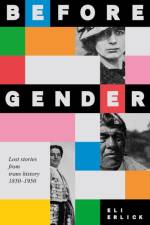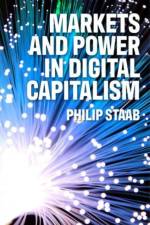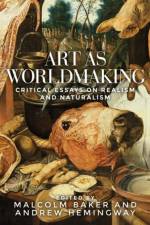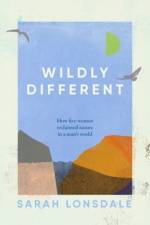Bøger udgivet af Manchester University Press
-
219,95 kr. - Bog
- 219,95 kr.
-
189,95 kr. - Bog
- 189,95 kr.
-
219,95 kr. - Bog
- 219,95 kr.
-
219,95 kr. - Bog
- 219,95 kr.
-
161,95 kr. - Bog
- 161,95 kr.
-
219,95 kr. - Bog
- 219,95 kr.
-
267,95 kr. - Bog
- 267,95 kr.
-
205,95 kr. - Bog
- 205,95 kr.
-
845,95 kr. - Bog
- 845,95 kr.
-
381,95 kr. - Bog
- 381,95 kr.
-
845,95 kr. [Not final] The Syrian civil war, ongoing since 2011, is one of the most destructive armed conflicts of our time. Yet, destruction and the spaces where it has taken place have been largely unexplored, as the study of war in the region has focused on broader macro dynamics.This book examines how the urbicide of Syria - the destruction and violent spatial alteration of its cities - emerges as a mechanism of governmental and sovereign power, reshaping political subjectivities and state-society relations. It does so by exploring socio-material transformations in everyday urban spaces and processes, from the ruination of homes and neighbourhoods to urban planning and reconstruction. Taking the cases of Damascus and Aleppo, this volume provides a unique window to the Syrian civil war and shows the importance of approaching war through lived experience.By employing critical political theory and a postcolonial perspective, the study situates urbicide within Syria's state formation. It unravels how colonial socio-material power relations remain central to how spatial violence is mobilised to produce political loyalty. Benefiting from a wide range of in-depth interviews, archival research, and aesthetic sources, the book provides an invaluable window to the interplay between the Syrian regime and various other local and international actors. Notably, the book emphasises the role of Syrians' political agency and creativity amid urbicidal violence, destruction, and authoritarian survival.Ultimately, this volume reveals the intricate relations between political violence, urban space, and the formation of identities in contemporary Syria, contributing meaningfully to the scholarly literature on the Post-Arab Spring Middle East.
- Bog
- 845,95 kr.
-
894,95 kr. Medieval and early modern texts reveal a deep fascination with material objects, from ancient heirlooms to ingenious automata. These items, often beautiful or imbued with power, are marked by an uncanny sense of otherness. Their mysterious origins evoke wonder and emphasize temporal and spatial distance, framing them as relics of alternative time schemes. Through their strange and wondrous qualities, such objects act as repositories of temporal alterity, bridging the past and the present in profound ways. This volume brings together contributions from experts in medieval and early modern literature and art history to investigate how texts of these periods use material objects to explore notions of temporal otherness. The chapters illuminate the dynamic interplay between materiality and temporality, showing how objects--both extraordinary and everyday--challenge conventional distinctions between the human and the material. From clothing to glass to humble bubbles, these objects are revealed as participants in complex networks that connect the natural and cultural realms. The discussions uncover how material objects disrupt the status quo, asserting a degree of independence that elevates them beyond mere utility. Whether exploring the hybrid status of Hector's body in Lydgate's Troy Book or the temporal resonance of marvellous artefacts, the book reveals a world where material artefacts possess their own temporal regimes and agency. By foregrounding the 'hybridity' of matter and its intermediary status, this collection anticipates Bruno Latour's critique of the divide between nature and culture. It offers a compelling rethinking of the boundaries between human and material, subject and object, in ways that resonate across disciplines.
- Bog
- 894,95 kr.
-
894,95 kr. What went wrong with Britain? presents a comprehensive account of the devastating legacy left by the Conservative government. Shining a light into every dark corner, the book exposes the full extent of the damage inflicted on the country's economy, social fabric and political integrity. When the Conservatives were voted out of government in July 2024, they left behind a miserable record of rising poverty, inequality and division. This book reveals the forces that have driven the country to the point of crisis, from austerity and economic mismanagement to sheer political dysfunction. Each chapter offers new insights into the far-reaching consequences of government policies that prioritised ideology, personal ambition and party politics over the public good. Examining the rise of populism, the politics of Brexit, the UK's response to the pandemic and the steady erosion of public trust, this shocking account of the legacy of Conservative government from 2010 to 2024 is a must-read for anyone who wants to understand exactly what went wrong with Britain.
- Bog
- 894,95 kr.
-
894,95 kr. [Not final] This edited volume explores the international relations of the Middle East region in a multipolar world.The book provides a unique engagement with the concept of multipolarity and its different meanings. Using a wide range of theories and methodologies, contributors engage with the different facets of multipolarity and its effects on the region. Regional dynamics, the role of external powers and relations with neighbouring regions all contribute to shape the Multipolar Middle East. Through its combination of theoretical and empirical analyses, this volume makes a timely and important intervention in debates about the present and future of international relations within the Middle East, and about the region's place in a shifting world order.
- Bog
- 894,95 kr.
-
556,95 kr. People in the Renaissance saw skin differently from how we do today. The Europe of 1500 to 1700 was a world of humours, and skin - the clothing of the body - was thought to be dangerously porous. In this landmark book, Evelyn Welch explores Renaissance skin as a bodily surface, as physical matter and as a generator of new knowledge. Ranging across anatomy, surgery and sausage making, she reveals how skin was managed by physicians as well as by glovemakers, butchers and parchment makers. How did people protect their health in a changing global environment, one where the air itself could be pathogenic? How did they see their bodies in a world where there was suddenly a multiplicity of skin colours and decorations? Addressing these questions and more, Welch show us what happens when you see skin differently, either in the marketplace, where men and women from far-away lands were put on display, or under the microscope. In doing so, she reveals that the past had a distinctive and very different way of understanding bodily experiences.
- Bog
- 556,95 kr.
-
205,95 - 845,95 kr. - Bog
- 205,95 kr.
-
845,95 kr. Cross-border intimacies draws on over a decade of frontline research to explore the lives of Chinese migrants who move to Taiwan for marriage. Spanning generations, it highlights the complex interplay between emotional and affective processes in shaping marriage migration between China and Taiwan. It argues that this phenomenon is the product of the interplay between the spheres of politics, the other, and the self. At the level of politics, cross-Strait marriage migration is manipulated by political actors to mobilise public opinion through a sentimental narrative legitimising inclusion and exclusion patterns. Cross-Strait marriage migration is also about the dynamic interactions between others - migrants and non-migrants, influenced by emotions and affect - in which meanings of family, inclusion, and integration are co-constructed and transformed over time. Finally, cross-Strait marriage migration is about the emotional and affective experiences of marriage migrants - the self - as they navigate discrimination and integration, develop a sense of belonging, and engage in intimate and homemaking practices. Importantly, this book demonstrates that as these three dimensions continually interact and negotiate with one another, they create new pathways, emotional and affective processes, and changing migration experiences, resulting in an ever-evolving phenomenon. This book contributes to empirical literature on marriage migration and emerging scholarship exploring the role of emotions and affect in migration phenomena.
- Bog
- 845,95 kr.
-
845,95 kr. Handcrafted textiles hold a central place in humanitarian aesthetics, ethics, and campaigning, from Oxfam projects to refugee workshops. These crafts evoke images of creativity and resilience but also stand as symbols of labour exploitation. Textile production, particularly in piecework and 'sweated industries, ' has long been a site of protest against poor pay, exploitation, and the erosion of traditional skills. Despite this dual significance, the history of philanthropic interventions in textile craft remains underexplored. This book delves into the intricate connections between craft, labour, and humanitarianism, examining the historical role of textiles in European and imperial humanitarian efforts. Through a series of case studies, it explores how philanthropic organisations and individuals have engaged with handicrafts to address social and economic challenges. Crucially, the book interrogates the complexities of humanitarian craftwork, balancing narratives of empowerment with critical analyses of control, agency, and commodification. Engaging with contemporary socially-engaged textile artists, the contributors reflect on how knowledge of craft practice can reshape historical understandings of humanitarianism. In doing so, it bridges past and present, showing how historical processes become materialised in modern craftwork. This is an essential contribution to the history of labour, material culture, and humanitarian practice, offering fresh perspectives on the intersections of craft and care.
- Bog
- 845,95 kr.
-
267,95 kr. This book offers a micro-global history of humanitarianism and medical care during the 'long' Second World War, which challenges the traditional and Eurocentric chronological boundaries of 1939/1945. It takes as its starting point the Japanese invasion of Manchuria in 1931, which led to the progressive dislocation of the League of Nations, with the Japanese, German and Soviet departures in the 1930s. It ends with the termination of the Korean War in 1953, and the subsequent dismantlement of the first United Coalition and UN Peace enforcement operation. It considers the slow, messy and ambivalent transformation of humanitarian actors' relations to the suffering of distant others through a study of humanitarian encounters, practices, spaces and affects. Paying close attention to a variety of actors, such as French colonial doctors, Swiss ICRC delegates, Egyptian relief workers, Chinese-style physicians, Peruvian and Ecuadorian nurses or American member of the Unitarian Service Committee, the book provides a more holistic story of humanitarianism.
- Bog
- 267,95 kr.
-
845,95 kr. While more than half of the world's population live in cities, informal settlements or slums continue to expand. Concomitant with their worldwide expansion, however, we do not see urban designers and planners wanting to actively engage with the informality conundrum. This bookexplores the informality-urban design nexus, and why formal urban designers and planners have remained largely reluctant or prostrate to address those challenges facing our cities. One could ask what distinguishes the formal vs. informal urban design paradigms in the first place? Experience shows that compounding informality and urban design creates more confusion as opposed to dealing with each theme separately. While urban designers could at least pinpoint specific problems, i.e., walkability, gentrification, visual and economic decline, sense of place, meaning, in their pre-design problem definition stage, informal settlement problems prove inexorably complex, and harder to fathom to begin with. Therefore, seeking to demystify these epistemological ambiguities--while difficult--makes sense. Using abductive reasoning, regulations, aesthetics, and design epitomize formal while information, assets and adaptation characterize the multifarious attributes of informal urban planning and design. Besides these thematic differentiations, this book uses case studies to better contextualize and unpack the metaphorical distinctions of the two theoretical entities. Conceptualizing these two schools of thought this way, the book engages urban designers more into these debates, and explores how informal settlement residents see themselves, act collectively, care about their settlements, or leverage opportunities. The book ends with some observations on avoiding two potential pitfalls surrounding discussions on urban design and informality.
- Bog
- 845,95 kr.
-
894,95 kr. In the Western cultural production that puts individual or collective fear at its centre, East and Central Europe has been portrayed as an othered space of horror - lawless, frightening zones where anything can happen. Despite social and political changes in the region after the fall of communism that sparked hopes for the Easterners to join the modernised (and much desired) West, East/Central Europe remained a 'cursed zone.' Contemporary Slavic horror across media: Cursed zones is the first scholarly volume solely devoted to Slavic horror fiction. Focusing on the mid-20th century through the present, the book assesses current trends in Czech, Polish, Russian, Slovak, Ukrainian, and East/Central European horror media. With threefold objectives - educational, methodological, and critical - in mind, the politics and history of the region are the main frameworks for the anthology. Our contributors focus on crucial questions we face today, such as the migration crisis, war subjectivities in the post-Soviet context, modern forms of misogyny, and contemporary variants of emancipation, as well as rewriting East/Central European historical events through a diversity of media, including film, literature, video games, music, music videos, and visual art. We aim to problematise these issues through a careful examination of how horror is manufactured, distributed, and manipulated in Slavic regions. By doing so, we hope to tame 'the Easterner Other' and exorcise 'monstrous' East/Central Europe.
- Bog
- 894,95 kr.
-
170,95 - 223,95 kr. - Bog
- 170,95 kr.
-
267,95 - 915,95 kr. - Bog
- 267,95 kr.
-
845,95 kr. Joining Up examines how the cultural legacy of the First World War affected young men's attitudes to service and subjective conceptions of wartime masculinity during the Second World War.Morley uses original and archival oral histories and the Mass Observation Archive to explore how young men in interwar Britain encountered and understood representations of the Great War in popular culture and day-to-day life. Interactions with Great War veterans are shown to be more important than previously acknowledged. By demonstrating the breadth of representations through which the cultural memory of the Great War was transmitted and the diversity of young men's responses Joining Up makes a significant intervention in the cultural history of the Great War.>Joining Up makes important contributions to, and connects, the history of the legacy of the First World War, and the history of gender and service in the Second World War.
- Bog
- 845,95 kr.
-
845,95 kr. The first comprehensive study of Sally Wainwright, this book examines the celebrated British screenwriter, director and producer through the lens of feminist television criticism and the concept of emotion, offering a detailed exploration of Wainwright's significant contributions to British television drama. Drawing on original interview material with Wainwright, the book opens with a biographical overview, situating Wainwright's work and sensibilities in Northern England alongside other Northern women writers such as Key Mellor and Lynda LaPlante. A central focus of the study is Wainwright's creation of heroic female characters, exemplified by Catherine Cawood in Happy Valley and Janet Scott and Rachel Bailey in Scott & Bailey. The book focuses extensively on the global success of Gentleman Jack, not only considering the contribution Wainwright has made to feminist and lesbian history but also the impact the series had on its fans through a discussion on Gentleman Jack Changed my Life. The book concludes by examining Wainwright's structuring of 'home' in both regional and national contexts.Essential reading for scholars of feminist television, British television, and drama, as well as fans of Sally Wainwright, this book illuminates how Wainwright's influential work engages with and contributes to feminist discourse in television.
- Bog
- 845,95 kr.
-
267,95 kr. Art as worldmaking is a response to Alex Potts's provocative 2013 book Experiments in modern realism. Twenty essays by leading scholars test Potts's recasting of realism through examinations of art produced in different media and periods, ranging from eighth-century Chinese garden aesthetics to video work by the contemporary Russian collective Radek Community. While the book does not neglect avatars of pictorial realism such as Menzel and Eakins, or the question of nineteenth-century realism's historical antecedents, it is contemporary in orientation in that many contributors are particularly concerned with the questions that sculpture, photography and non-traditional media pose for realism as an aesthetic norm. It will be essential reading for students of art history concerned with art's truth value or more broadly with conceptual problems of representation and the intersections of art and politics.
- Bog
- 267,95 kr.
-
888,95 kr. Spirits of extraction reexamines the entangled histories of racism, Christianity, and humanitarian biopolitics in the long nineteenth century, offering a fresh perspective on the intersection of extractive industries, evangelical revivalism, and the violent civilisational metaphysics of race. Moving across eighteenth-century industrialising Bristol, the Cornish mining diaspora of the expanding British Empire, and the contested lands of Anishinaabewaki/Upper Canada/Ontario, this book traces how evangelical Christianity helped shape the colonial world through processes of extraction - of resources, bodies, and souls. Blending historical narrative with critical theory, the book makes two key interventions. Firstly, it repositions colonial religion and educational/cultural racism as central to the biopolitical project, analysing the wounding effects of 'truly Christian' education and exorcism in evangelical subject formation. Secondly, it extends thinking on the 'geology of race' by highlighting the extractive industries as the affective scene through which modern evangelical Christianity came to life. By showing how mining and missionary practices co-constituted racial hierarchies and modes of sovereignty, Spirits of extraction offers a major contribution to thinking about the politics of life and resource extraction. Evangelical experiences of salvation, exorcism, and the transformative power of faith, the book argues, resonate through geological consciousness and the logics of extraction, sustaining a quasi-divine force that continues to structure lives and landscapes today.
- Bog
- 888,95 kr.
-
191,95 kr. For millennia the 'wild' was a place heroic men went on epic quests. This book traces the lives of five women who fought against prejudice for their right to work in, enjoy and help save the earth's wild places.
- Bog
- 191,95 kr.
-
219,95 - 845,95 kr. - Bog
- 219,95 kr.
-
219,95 - 972,95 kr. - Bog
- 219,95 kr.





